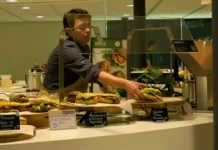So how was 2021? Was the pandemic the only “happening” thing? How did the housing market and, the economy fare?
Child care benefits scandal
The year started with a curfew, lockdown, riots, hope due to vaccination and a scandal. Amidst the lockdown and pandemic frustrations, we witnessed the ugly Child care benefits scandal, which led to the third Rutte cabinet becoming a demissionary cabinet. Blames, apologies, fault findings stirred up a hornet’s nest and eventually, we saw some resignations. However, the fact remains that there were discrepancies that triggered mistrust.
Vaccination
The Netherlands started to vaccinate its population on January 6, so the year started with quite some hope. As of 26 December, 85.9 per cent of the population are vaccinated. Twenty four per cent have received the booster shots. Eighty-two per cent are fully vaccinated in Eindhoven while Veldhoven is better at 89 per cent. Twenty four per cent have received the booster shots.
Riots against curfew
The 2021 Dutch curfew riots followed soon after. These riots (avondklokrellen) were a series of riots in the Netherlands that initiated protests against the government’s COVID-19 prevention measures, specifically against the introduction of the night curfew.
Dutch national elections
The Dutch national elections in March was an important milestone this year. VVD was the largest party with 22 per cent backing, while D66 consolidated some gains to close second in the race. Though PVV lost a little ground, still managed to finish third, but wouldn’t be included in the formation. The formation of the new cabinet would be announced by 10 January with parties VVD, D66, CDA and Christian Unie uniting to form a coalition.
Eurovision song contest
The Eurovision song contest in Rotterdam was executed well. However, Yu no man broko mi failed to impress at home while many Netherlanders rooted for the Greek “supergirl” Stefania.
Killing of Peter R. de Vries
On 6 July 2021, Dutch investigative journalist and crime reporter Peter R. de Vries was killed. He was shot in the head after leaving the television studio of RTL Boulevard in Amsterdam, where he had appeared as a guest. R. de Vries was a television personality and the most well-known crime reporter in the Netherlands. He gained national prominence with his television program Peter R. de Vries: Crime Reporter.
Limburg floods
In July, heavy downpour in the Ardennes region, neighbouring hilly region of Germany and Limburg caused floods leading to the evacuation of hundreds. The estimated total damage caused by flooding amounted to between 350 and 600 million euros.
Dutch Summer
July saw a return to almost normalcy with the Covid regulations saving the summer. While our neighbouring countries were pulling the masks up we, the Dutch, even let go of social distancing. We take our freedoms seriously, don’t we?
November riots and Omicron scare
After the summer, the Netherlands returned to a brief period of normalcy as the outgoing government relaxed the Covid regulations were fully relaxed though it didn’t last long. November was marked with riots following the “yet again” partial lockdown and other Covid restrictions. Five police officers were injured, and at least 40 people were arrested across three provinces during these violent protests. The Netherlands implemented a flight ban from a few countries amidst the Omicron trepidations in late November. Autumn saw an increase of Covid infections among primary school children, and one in two schools were significantly affected.
From December 19, The Netherlands has been in a complete lockdown. Schools, other educational institutions and most services were closed to decrease the pressure on the health care sector. Booster doses were made available to protect the population, and “at-risk” children between five to eleven were invited for vaccinations.
Housing market
House prices grew by about 18 per cent compared with 7.8 per cent in 2020. The performance of the Dutch housing and mortgage market has remained stable throughout the pandemic. The housing shortage, low-interest rates and tax benefits for homeowners and generous borrowing standards contribute to the price increase. Economists at ABN Amro estimate the Netherlands has 330,000 fewer houses than it needs and should build 1 million more in the next decade to close the gap.
Oxford Economics ranked the Netherlands (in July) as the riskiest housing market of any developed economy as house prices were 14.3 per cent above their long-term trend, while the price-to-rent ratio was 15.3 per cent above its long-term trend. Nevertheless, experts predict that the prices would continue to increase in double digits in 2022.
Dutch Economy
Following a historical contraction in the gross domestic product (GDP) of 3.7% in 2020, the economy has recovered rapidly in 2021. According to an estimate conducted by Statistics Netherlands (CBS), gross domestic product (GDP) increased by 2.1 per cent in Q3 2021 relative to Q2 2021. An estimate shows that the number of employee and self-employed jobs increased by 158 thousand in Q3 2021 compared to the previous quarter. It is noteworthy that the Eindhoven region increased by about 2% in GDP in the first quarter while the economy contracted in the rest of the country.
The OECD forecasts a surge in economic growth. According to the OECD prediction, the GDP would exceed pre-crisis levels by the end of 2021, before expanding by 3.2% in 2022 and 1.8% in 2023. Private consumption will drive growth as households’ saving rates continue to normalise after rising sharply early in the pandemic. Private investment is recovering more slowly due to lingering uncertainty. As the economy recovers and job vacancies increase, unemployment will remain at low levels.
Eindhoven News wishes you all a happy 2022.
For Eindhoven News: Beena Arunraj ![]()

Editor-in-Chief, Eindhoven News, is a dentist who followed her passion, becoming a writer. She also works as a freelance content creator, copywriter and inks media campaigns for businesses and organisations.
















